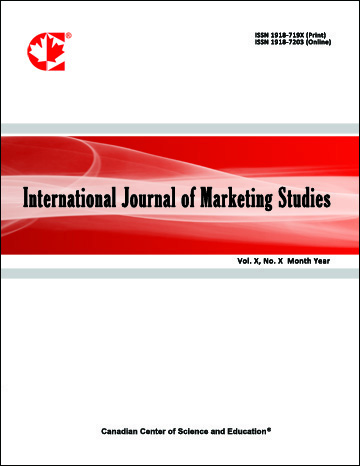A Qualitative Exploration of Culturally-Pluralistic Segmentation among Millennials
- Lori Thanos
- Sylvia Clark
Abstract
The purpose of this study was to examine the possible existence of culturally-pluralistic segmentation based on perceptions of U.S. Millennials attending college in New York City. The present research posits that this key cohort, the culturally-pluralistic consumer, i.e., one who has many cultural associations but only one of those cultures presents as dominant, has the propensity for being grouped as an identifiable market segment. Utilizing a qualitative case study approach, twelve face-to-face interviews were conducted with Millennials from a New York City community college. The objective was to explore participants’ perceptions as to how their cultural associations influence their food purchase and consumption behaviors, particularly with regard to ethnic foods. Findings concluded that Millennials are aware of cultural pluralism and deem themselves culturally-adept, self-identifying with cultures other than their original family bloodlines. Participants’ tendencies were inclined toward choosing ethnic foods from a singular dominant culture from among their various cultural connections and associations. The results from this study support cultural pluralism as a segmentation method and can be used to add to current literature as well as for marketers to develop strategy.
- Full Text:
 PDF
PDF
- DOI:10.5539/ijms.v9n4p1
Journal Metrics
Google-based Impact Factor (2021): 1.34
h-index (July 2022): 70
i10-index (July 2022): 373
Index
- Academic Journals Database
- CNKI Scholar
- EconBiz
- Electronic Journals Library
- Excellence in Research for Australia (ERA)
- GETIT@YALE (Yale University Library)
- Harvard Library
- IBZ Online
- Infotrieve
- JournalTOCs
- LOCKSS
- MIAR
- PKP Open Archives Harvester
- RePEc
- ResearchGate
- ROAD
- Scilit
- SHERPA/RoMEO
- Stanford Libraries
- UCR Library
Contact
- Alyssa SunEditorial Assistant
- ijms@ccsenet.org
